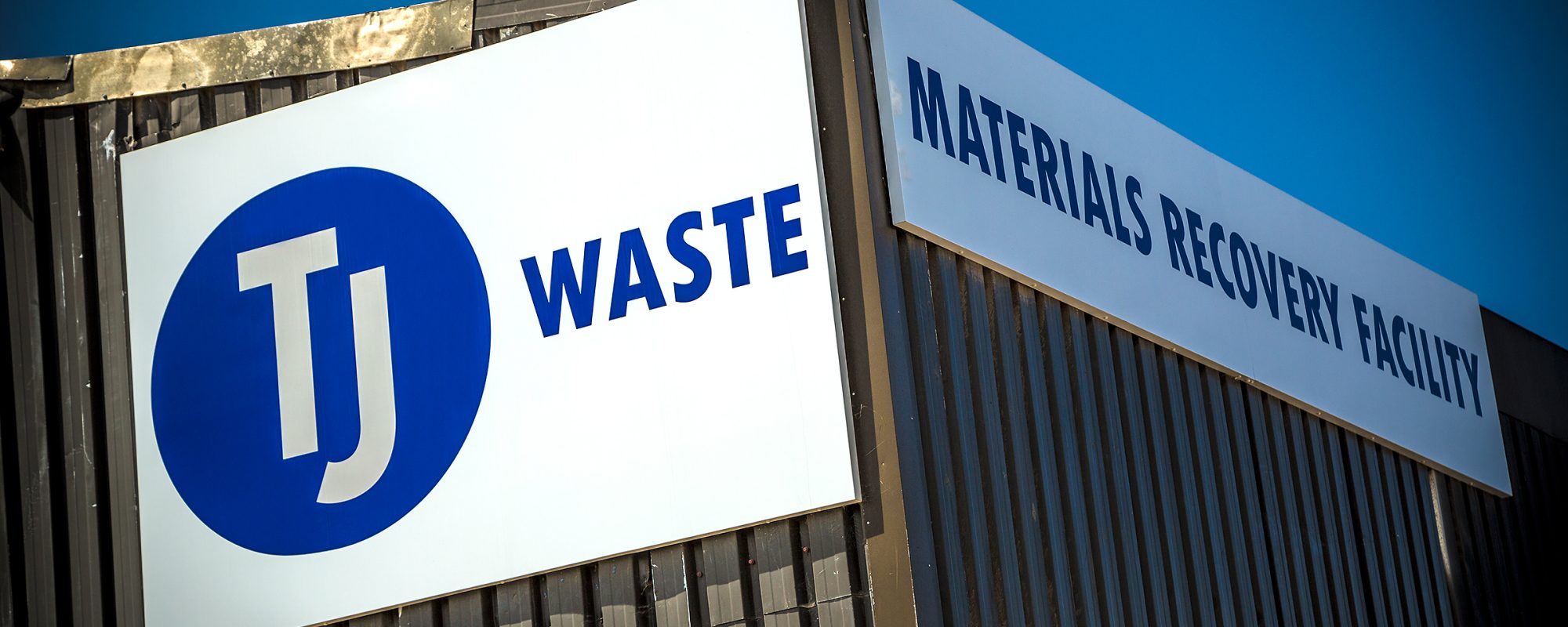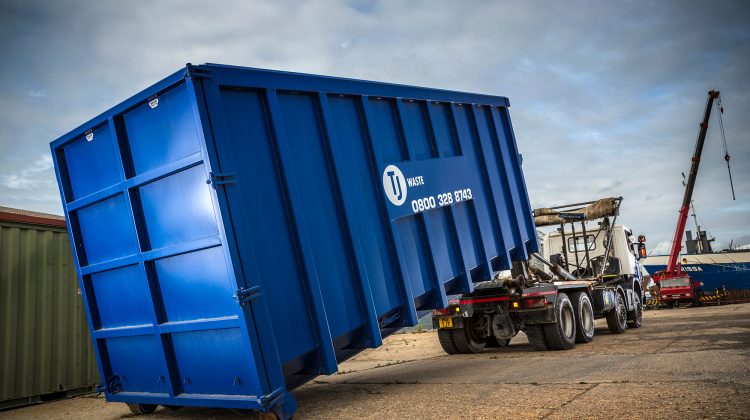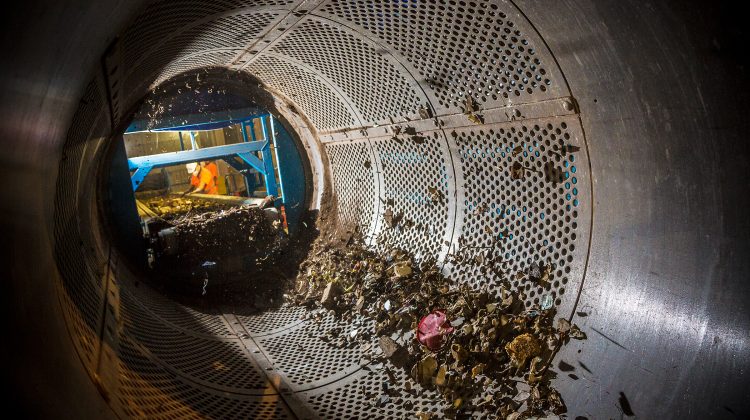The UK is the ninth largest manufacturing nation in the world, with the total value of UK manufacturers’ product sales totalling £396.6 billion in 2019. Manufacturing equates to 11% of the UK’s GVA and employs 2.7 million people.

All companies, big and small, must have plans in place to manage their waste to ensure it is disposed of correctly and that they are abiding by the law.
Businesses have a legal responsibility under the Environmental Protection Act 1990 and other related legislation to safely contain and legally dispose of any waste produced by your business. Not doing so could cost additional time and money or legal action against your organisation.
Not only that, but in today’s world, we should all be mindful of the impact our waste is having on the environment and do all we can to limit any negative effects. Disposing of your waste in the correct way could make it possible for much of your waste to be directed down other routes and diverted from landfill, which is one of TJ’s primary concerns.
Choose TJ for your commercial waste management requirements! We’ll take care of everything, leaving you with more time to get on with running your business. Many companies have put their trust in TJ, so why not have a read and discover some of our existing customers’ experiences of our services?
What waste types does your business generate? You’ll need to give this some thought so that you can ensure that all your needs will be taken care of by your chosen waste handling company. The common waste streams include:
General waste: food and any materials that cannot be recycled such as some plastics, foil, tissues, cellophane, stationery waste and teabags to name a few.
Common recyclables: paper, cardboard, metal tins and cans, plastic bottles and aerosols.
Other recyclables: wood, metal, some plastics, concrete.
Confidential waste: any paperwork containing personal or sensitive data will need to be disposed of correctly. TJ can do this for you and will provide a verified certificate of destruction to ensure total peace of mind that you’ve disposed of your data responsibly.
WEEE: the collection, treatment, recycling and recovery of waste electrical and electronic equipment.
Hazardous waste: if you have materials such as plasterboard, asbestos, fridges or liquids to dispose of.
How much waste do you generate as a company? Think about how many members of staff you have, how much waste each of them may generate and also what waste your business process will produce. This will enable you to estimate how often you will need collections. You could start with one a week and go from there – you can up it to twice a week or decrease it to fortnightly to suit.
Do you require total site management or partial? Perhaps you already have providers for some of the required services? It is advantageous to use the same company for all your waste needs as everything can be timed correctly and tied in together to be the most time and cost effective. Remember, TJ can do it all, so keep us in mind!
If you’re a construction company or a business that generates additional waste at certain times, you may be interested in using TJ’s tipping service. We operate three commercial waste disposal points, also known as Materials Recovery Facilities, located along the South Coast in Southampton, Portsmouth and Yapton. Materials accepted includes mixed waste, builders’ waste, green waste, plasterboard, inert spoil and hardcore.
A Site Waste Management Plan (SWMP) outlines how resources will be managed and waste controlled throughout a construction project. It will cover:
The Department for Environment, Food and Rural Affairs recommends that all construction projects have a SWMP to ensure the waste disposal is being legally done. Having a SWMP may also help you win business because you can use it to prove your environmental performance, which will in turn enhance your reputation.
TJ’s skip hire service is versatile and you could book a skip as quickly as the next working day should you need to! If you are expecting to generate a large amount of waste on-site which is outside of the norm, hiring a skip is likely to be the easiest and most cost effective solution. Try to estimate how much waste you think you’ll generate during the project and go for the skip to match. The guidance below may help, but also check out the individual skip pages for a better idea and exact dimensions.
2 yard ‘mini’ skip: this is ideal for small domestic and garden jobs and will hold 20-30 bin bags’ worth of waste.
4 yard ‘midi’ skip: perfect for projects such as kitchen or bathroom refits or garden clearance, this skip can hold 30-40 bin bags.
6 yard ‘maxi’ skip: it can hold between 50 and 60 bin bags of waste, making it ideal for medium-sized projects such as house renovations and clearance of gardens, garages and lofts.
8 yard ‘mega’ skip: this skip can hold 60-80 bin bags’ worth of waste. It is often used for bulky and heavy waste such as rubble, soil or concrete and is perfect for major renovation work or full house clearance.
12 yard ‘jumbo’ skip: ideal for larger jobs such as full office or house clearances as well as a range of commercial projects, this skip can hold the equivalent of around 120 bin bags.
Find out more about TJ’s commercial waste management services and get in touch to discuss your requirements with one of our friendly and helpful advisers.

The UK is the ninth largest manufacturing nation in the world, with the total value of UK manufacturers’ product sales totalling £396.6 billion in 2019. Manufacturing equates to 11% of the UK’s GVA and employs 2.7 million people.

With the UK’s population continuing to grow, the waste industry is under increasing pressure, and the need for innovative, sustainable solutions has never been greater. From staggering statistics to surprising insights, check out our 10 shocking waste facts that might just change the way you think about rubbish.

Barney joined TJ Waste in February as an Operations Administrator and is enjoying learning all about the waste industry. Outside of work Barney is an avid football fan and plays five-a-side once a week. He also enjoys live music, Formula 1 and MotoGP.
Change your stored postcode to update prices for your location.
Notifications